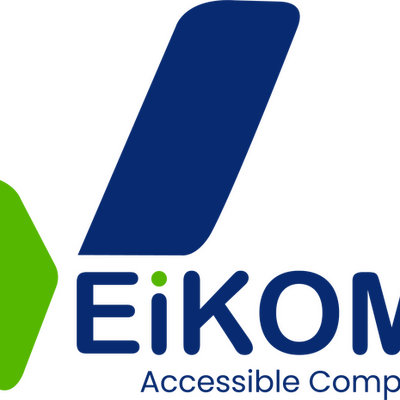Notifications
ALL BUSINESS
COMIDA
DIRECTORIES
ENTERTAINMENT
FINER THINGS
HEALTH
MARKETPLACE
MEMBER's ONLY
MONEY MATTER$
MOTIVATIONAL
NEWS & WEATHER
TECHNOLOGIA
TV NETWORKS
VIDEOS
VOTE USA 2026/2028
INVESTOR RELATIONS
COMING 2026 / 2027
ALL BUSINESS
COMIDA
DIRECTORIES
ENTERTAINMENT
FINER THINGS
HEALTH
MARKETPLACE
MEMBER's ONLY
MONEY MATTER$
MOTIVATIONAL
NEWS & WEATHER
TECHNOLOGIA
TV NETWORKS
VIDEOS
VOTE USA 2026/2028
INVESTOR RELATIONS
COMING 2026 / 2027
About Me
 Kajal Gupta
Kajal Gupta I am Sakshi Verma working in Markek International Certifications private limited Company as Business Manager in Gurgaon, India
 Kajal Gupta -
May 22 -
Business -
BIS certification in India
BIS certification for toys in india
FMCS bis certification online
BIS Certification
-
84 views -
0 Comments -
0 Likes -
0 Reviews
Kajal Gupta -
May 22 -
Business -
BIS certification in India
BIS certification for toys in india
FMCS bis certification online
BIS Certification
-
84 views -
0 Comments -
0 Likes -
0 Reviews

A Bureau of Indian Standards (BIS) accreditation is now a crucial prerequisite for companies looking to gain reputation, legal compliance, and customer confidence in India's cutthroat market. In addition to streamlining the intricate process, working with a consultant for BIS certification guarantees correctness, expediency, and successful acceptance. To address the demands of manufacturers, importers, and business owners, we provide an extensive guide that delves deeply into every facet of BIS certification, including the procedure, documentation, types, timescales, and advantages.
BIS Certification: What Is It?
The Bureau of Indian Standards, a national organization under the Ministry of Consumer Affairs, Food, and Public Distribution, Government of India, requires BIS certification as a conformance mark. Certain products must fulfill Indian safety, performance, and quality standards in order to be sold in the Indian market.
Three main schemes are used to issue BIS certification:
Scheme for ISI Mark Certification
Scheme for Compulsory Registration (CRS)
FMCS, or the Foreign Manufacturers Certification Scheme
Why Engage a BIS Certification Consultant?
Independently navigating the BIS certification process can be challenging, particularly for small enterprises, startups, and international manufacturers. The benefits of hiring a qualified BIS certification consultant are enormous:
comprehensive instructions for choosing the best plan.
Correct documentation is necessary to prevent rejections.
direct communication with representatives of BIS.
expedited approvals and time-saving procedural help.
support for testing and inspections from labs approved by BIS.
reducing risk by avoiding fines for noncompliance.
BIS Certification: Who Needs It?
Under various systems, BIS certification is required for more than 500 goods. These consist of:
IT products and electronics (under CRS)
Kitchenware, cement, and home appliances (under ISI)
Electronics and mechanical devices made abroad (under FMCS)
A few instances are:
LED Lighting
Cell Phones
Adapters for Power
Batteries made of lithium-ion
Cement
Cooking appliances that use pressure
Powdered milk
BIS Certification Scheme Types
1. The ISI Mark System
A product that bears the ISI mark complies with Indian standards. It applies to domestic producers of steel, cement, home appliances, and other goods.
Important attributes:
A factory inspection is required.
testing of samples in labs authorized by BIS.
continuous monitoring.
2. Scheme for Compulsory Registration (CRS)
CRS was mandated for electronics and IT devices by the Ministry of Electronics and Information Technology (MeitY).
Important attributes:
self-affirmation of compliance.
A factory inspection is not necessary.
Both foreign and Indian industries can use it.
3. FMCS, or the Foreign Manufacturers Certification System
FMCS is intended for international producers who export goods to India that need to bear the ISI mark.
Important attributes:
Applications must be sent from the nation where the manufacturer is located.
BIS officials inspect the factory.
at India, samples must be examined at labs that have been approved by the BIS.
Detailed Procedure for BIS Certification
Step 1: Determining Relevant Standards
Finding the Indian Standard (IS) code that applies to your product is the first step. Our advisors help you align the applicable BIS standards with your product requirements.
Step 2: Preparing Documentation
Important documents consist of:
Certificate of Company Registration
License for Manufacturing
Agreement for Authorized Indian Representatives (AIR) for international candidates
User guides and product specs
Test results from laboratories authorized by BIS
Documents related to quality management (such as ISO 9001)
Step 3: Testing the Product
For conformity testing, products are delivered to labs that have been approved by BIS. To prevent delays, a consultant makes sure that test settings, sampling, and lab communication are all done correctly.
Step 4: Submitting an application
Depending on the scheme, a thorough application is submitted to BIS via the relevant portal (manakonline.in for CRS, for example). Consultants guarantee submissions free of errors.
Step 5: Examination (If Necessary)
BIS representatives carry out on-site inspections as part of ISI and FMCS programs to confirm standard compliance, testing facilities, and manufacturing procedures.
Step 6: The BIS Certificate is granted
The BIS certification enables you to use the ISI mark or CRS logo on your product after all processes are finished and the product satisfies compliance requirements.
Documents Needed for Certification in BIS
Depending on the product type and certification process, the specific documentation differ. Typical prerequisites consist of:
Certificate of incorporation or business license
Product details sheet
Technical illustrations
User guide
Registration of a trademark (if applicable)
Letter of authorization for the Indian Representative (for international companies)
Reliable test results from labs with BIS accreditation
The BIS Certification Timeline and Cost
Certification in CRS: 4–6 weeks
Depending on the intricacy of the product, ISI Mark Certification takes two to four months.
Certification for FMCS: 4–6 months
The price
The price of BIS certification consists of:
Application cost
Fees for product testing
Fees for factory inspections
Fee for consultants (varies depending on service scope)
Fees for yearly surveillance and renewal
Our consulting provides clear service packages at cheap prices.
Renewal and Compliance After Certification
Usually valid for one to two years, BIS certificates must be renewed after that. To keep certification, ongoing product testing and surveillance checks are necessary.
Our group helps with:
timely filing for renewal
Managing the surveillance examinations
In the event that a product is modified, updating certification
Why Pick Us as Your Consultant for BIS Certification?
Our years of experience in the field enable us to assist companies in India and beyond in effectively and economically obtaining their BIS certifications. Among our offerings are:
Initial consultation is free.
Personalized certification path
Committed account manager
Coordination and documentation of the lab
24/7 assistance for pressing needs
Management of renewal and compliance
Our client satisfaction and success rate attest to our dependability and commitment.
Questions and Answers (FAQs)
Q1. Do all electronics need to be BIS certified?
Yes, certification is required for products listed under the CRS scheme in order to be sold or imported into India.
Q2. Are international businesses eligible to seek for BIS certification?
Indeed. Depending on the type of product, foreign firms must register under the FMCS or CRS scheme and designate an Authorized Indian Representative (AIR).
Q3. What is the duration of validity for BIS certification?
BIS certificates normally have a one- to two-year validity period, and in order to stay out of trouble with the law, they must be renewed before then.
Q4. What occurs if a product supplied in India is not certified?
Selling uncertified regulated goods in India can result in severe fines, product recalls, and possibly even a sale or import prohibition.
Concluding remarks
The best course of action for any company looking to enter or grow in the Indian market is to collaborate with a reputable consultant for BIS certification. Our consultant guarantees a seamless, expeditious, and compliant BIS certification path with its comprehensive insights, legal expertise, and procedural proficiency.
